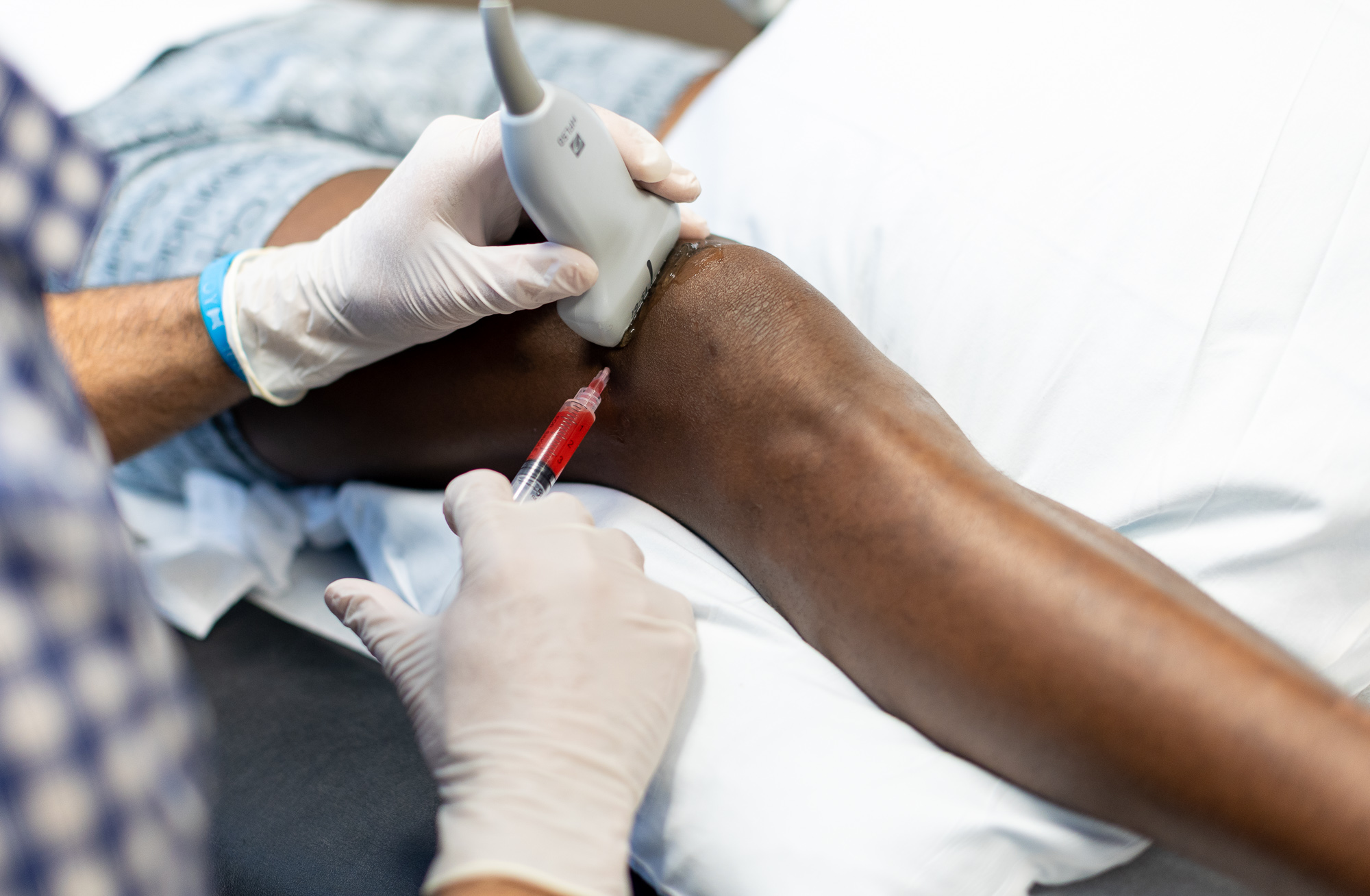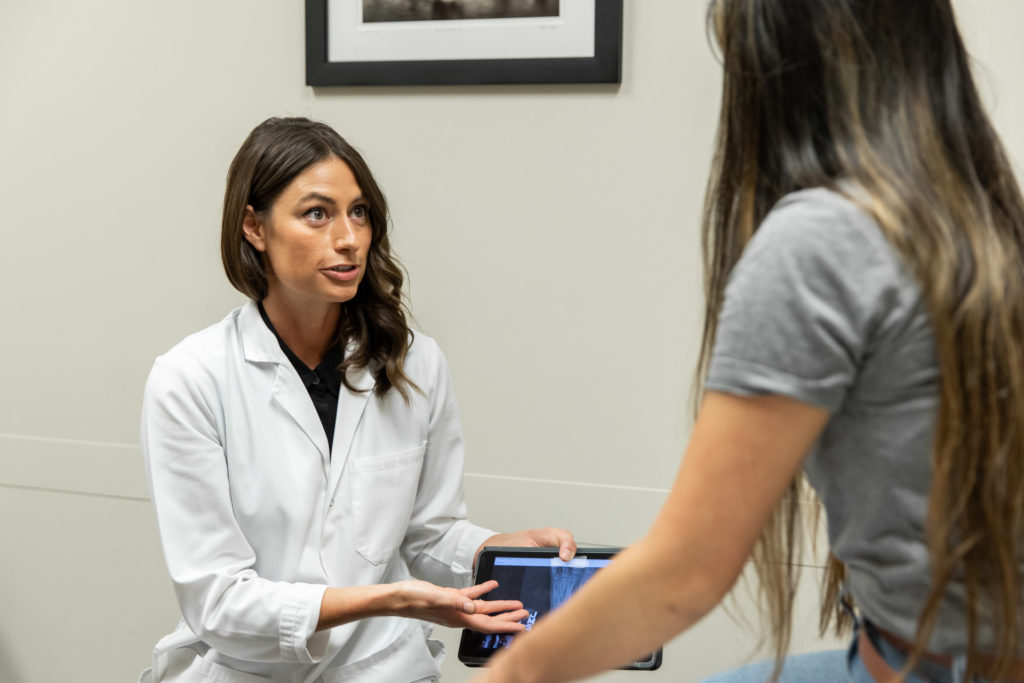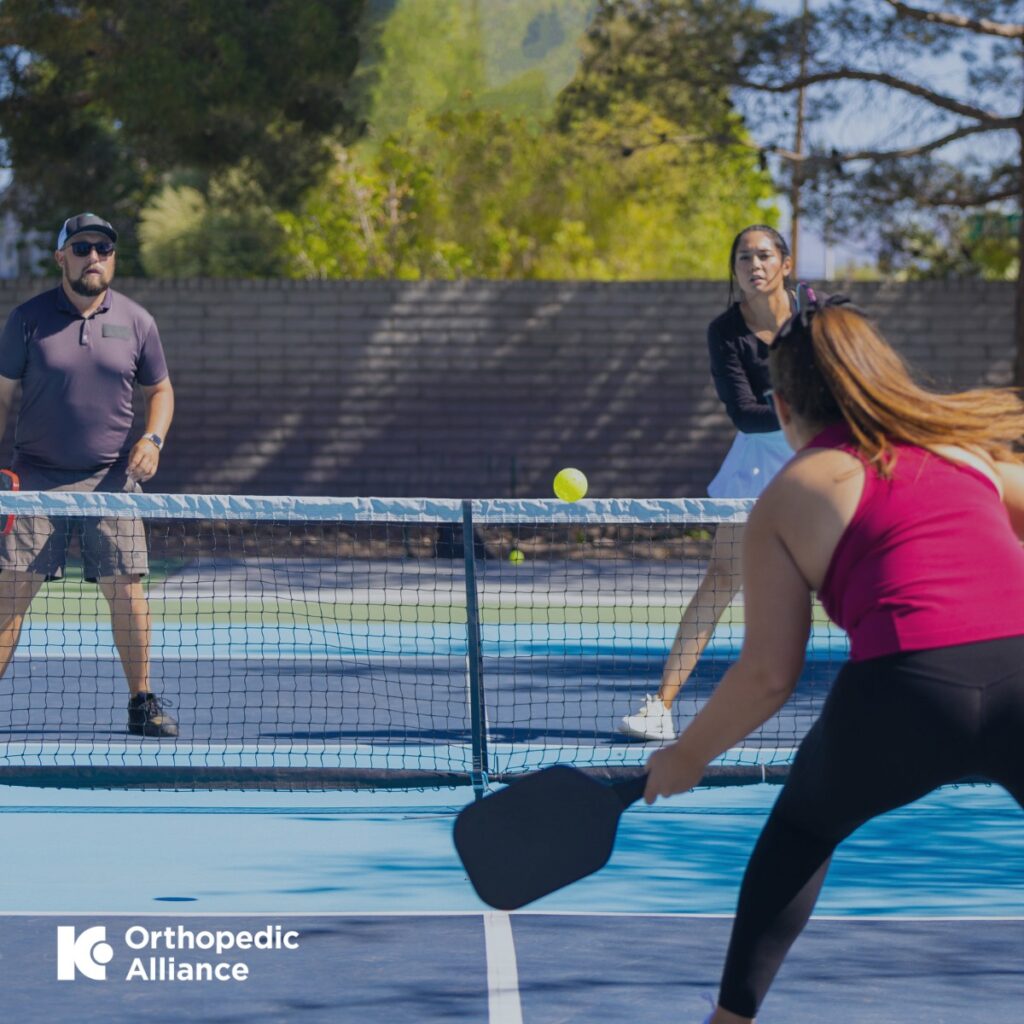
In the world of orthopedics, researchers are always searching for new, more effective ways to treat patient injuries. Orthobiologic treatments like platelet rich plasma (PRP) have gained significant popularity in recent years.
While there’s a lot of information about PRP online, it can be challenging to separate fact from fiction.
Kansas City Orthopedic Alliance is the Midwest’s premier provider of orthopedic care. As the largest orthopedic practice in Kansas City, we treat thousands of patients each year across our 5 locations: Overland Park, Leawood, Belton, Kansas City, and Blue Springs. Using the latest technology, our physicians can evaluate, diagnose, and treat nearly any type of musculoskeletal injury.
At KCOA, our physicians offer orthobiologic treatments (like PRP) as one of many non-surgical treatment options. Keep reading to learn more about PRP, its uses, and other treatments for orthopedic injuries at KCOA.
If you’re ready to start your journey to recovery right now, schedule an appointment with an experienced orthopedic provider.
What is platelet rich plasma?
Platelet-rich plasma is a type of “orthobiologic” treatment, also sometimes called regenerative therapy that uses the body’s own cells and growth factors to treat acute injuries and chronic pain. Let’s break down the process of PRP and how it can help the body heal.
A deep dive into your blood
Blood naturally has components that help promote healing. If you get a paper cut or a scratch, the body can swiftly heal the wound with the available resources. However, sometimes we don’t heal properly or fully from injuries.
That’s where platelet rich plasma comes in. PRP is a highly concentrated mix of the components in your blood that promote healing. What are these components? Let’s review the four main components of your blood.
1. Platelets
Platelets play several essential roles in the body. One of the most well-known responsibilities of platelets is blood clotting. When a vessel is damaged, platelets adhere to one another to stop the bleeding.
Platelets also play a significant role in wound healing. When there is injured tissue, platelets accumulate near the wound and release growth factors to repair the tissue. Platelets are the essential component of PRP because of their ability to repair and heal damage.
2. Plasma
Plasma is the fluid in your blood that carries the essential platelets, growth factors, and other healing components. Plasma usually makes up about 55% of the total volume of our blood. Plasma is critical for PRP because it delivers the platelets to the areas that need it most.
3. Red blood cells
Red blood cells deliver oxygen from your lungs to the tissues in your body. While red blood cells play a critical function in your body, they aren’t heavily involved in wound healing. Because of this, we don’t typically use red blood cells in PRP.
4. White blood cells
White blood cells are immunity cells that fight off viruses, bacteria, and infections. We typically remove white blood cells from PRP, but for some injuries, retaining a portion of the white blood cells is beneficial.
The PRP process
1. Collection
The first step of PRP is a blood draw. Similar to routine lab work, we take a blood sample from your arm.
2. Separation
We then place the blood into a centrifuge. The centrifuge spins the blood at a high speed, causing its components to separate. This allows us to easily isolate the PRP from the rest of the content.
3. Injection
Lastly, we use a small needle to inject PRP into the site of pain. At KCOA, our physicians use ultrasound guidance to ensure the accuracy and effectiveness of the treatment.
What can platelet rich plasma treat?
PRP is a relatively new science. It’s important to understand that PRP is not a universally proven treatment. It has good potential, but it doesn’t have the research to support it 100% yet.
Our physicians who administer PRP see favorable results, but it isn’t the right treatment for everyone. PRP is one of many non-surgical treatment options to manage pain and heal injuries.
Injuries that respond well to PRP
The right treatment for you depends on your injury, pain level, and activity goals. For injuries that don’t respond well to other non-invasive treatments (physical therapy, ice, braces, etc.) we might consider orthobiologics. KCOA physicians commonly use PRP injections in Kansas City to treat:
- Osteoarthritis
- Tennis elbow & golfer’s elbow
- Lateral hip pain (including gluteus medius tendinopathy & trochanteric bursitis)
- Elbow UCL tears
- Shoulder pain & non-surgical labral tears
- Patellar tendonitis or tendinopathy
- Achilles tendonitis or tendinopathy
- Chronic proximal hamstring injuries
- Rotator cuff injuries
- Plantar fasciitis
- Elbow biceps tendonitis/partial tears
If you want to find out if PRP therapy in Kansas City is right for you, book an appointment with a KCOA orthobiologic physician today.

Frequently asked questions about PRP
In Kansas City, our patients often have questions about PRP. To help you better understand this treatment, we’ve compiled a list of some of the common questions we hear from patients.
Does insurance cover PRP?
Insurance typically does not cover orthobiologic (regenerative medicine) treatments. If your physician determines that you are a good candidate for PRP and you would like to move forward with treatment, KCOA can work with you to create a payment plan to cover your treatment.
What are the risks of PRP?
When a trained KCOA orthopedic physician administers PRP, the risk is very low. As with any injection, there is a risk of infection, but sterile technique helps to prevent this. It’s possible to experience bleeding or bruising at the injection site, but it’s typically mild and resolves within days.
Because we derive platelet rich plasma from the body’s own resources, the risk of an adverse reaction to PRP is very low. The most considerable “risk” associated with PRP is from a financial standpoint. We can’t guarantee that treatment will work for you, and we realize that it can be a significant investment.
Where should I go for PRP injections?
There are a lot of clinics that advertise PRP injections in Kansas City. It’s important to see a qualified healthcare professional with experience in wound healing and orthopedic injury recovery. At KCOA, we take a structured, scientific approach to PRP that you won’t find elsewhere. In fact, we have some of the top regenerative medicine physicians in the country in our clinics!
How often do I need PRP?
You’ll only need one PRP treatment session for an acute injury. If you receive PRP for a chronic condition such as arthritis, you will typically only need treatment once a year.
What should I do before PRP treatment?
Before your platelet rich plasma treatment, you should avoid taking medications like aspirin, which affect your platelets.
Is platelet-rich plasma my only option?
If you have an orthopedic injury and are looking for pain management in Kansas City, PRP is not your only option. KCOA offers many treatments for orthopedic injuries, including:
- Prescription medications
- Physical therapy
- Braces
- Surgery when necessary
Oftentimes, we combine treatments to enhance their effectiveness. You don’t have to choose between PRP or physical therapy—they can both be part of your treatment plan.
Visit Kansas City Orthopedic Alliance to learn more about platelet rich plasma
If you’ve made it to the end and are still wondering, “what is platelet rich plasma?”, it’s time to schedule an appointment with one of our orthobiologic physicians.
At Kansas City Orthopedic Alliance, we’re dedicated to creating a superior patient experience for all. Whether you need immediate treatment for an acute injury or are looking for a solution to manage chronic pain, our team will work with you to ensure the best possible outcomes.
We’ve helped thousands of patients treat their pain, restore their function, and improve their quality of life. Are you next?
For a thorough evaluation, call us at (913) 319-7600 or schedule an appointment today. If you’re struggling with pain but don’t know where to start, use our symptom tracker for treatment recommendations.


